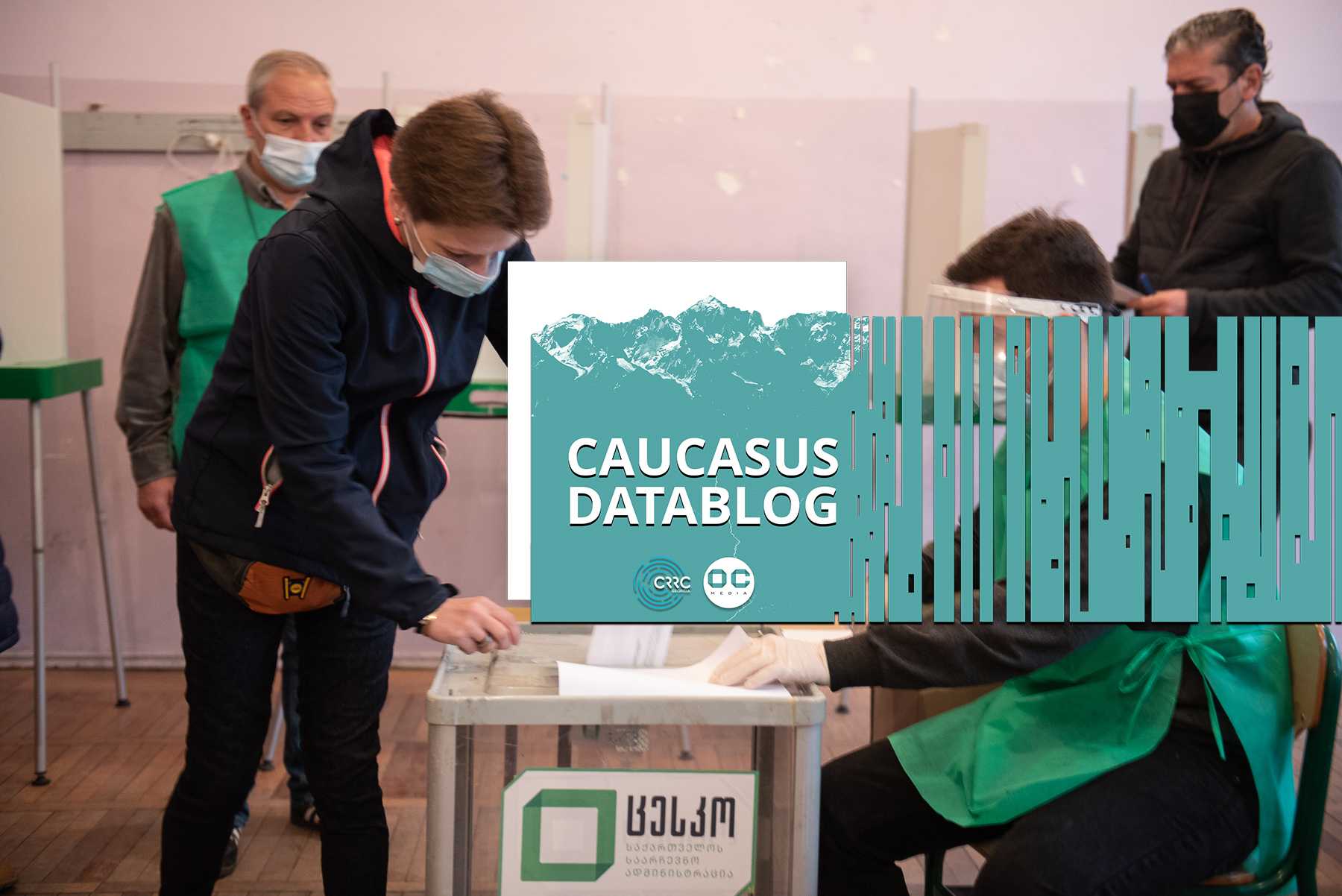
Georgian Dream have won a byelection for the Batumi City Council. While the council is now formally hung, a ‘neutral’ candidate is suspected to be a ruling party ally.
Georgian Dream’s candidate Ramaz Jincharadze won a convincing victory in Saturday’s vote for a majoritarian council seat in Batumi, Georgia’s second-largest city and the capital of the Autonomous Republic of Adjara.
The result will upset plans by opposition groups the United National Movement (UNM) and Lelo to deny the ruling party control of the city, an aim that had seemed all but achieved after the October local elections.
According to final results announced by the Central Election Commission (CEC) on Sunday, Jincharadze won in all 14 polling precincts of Batumi’s fourth electoral district, winning 69% of the vote against 31% garnered by opposition contender Mate Putkaradze.
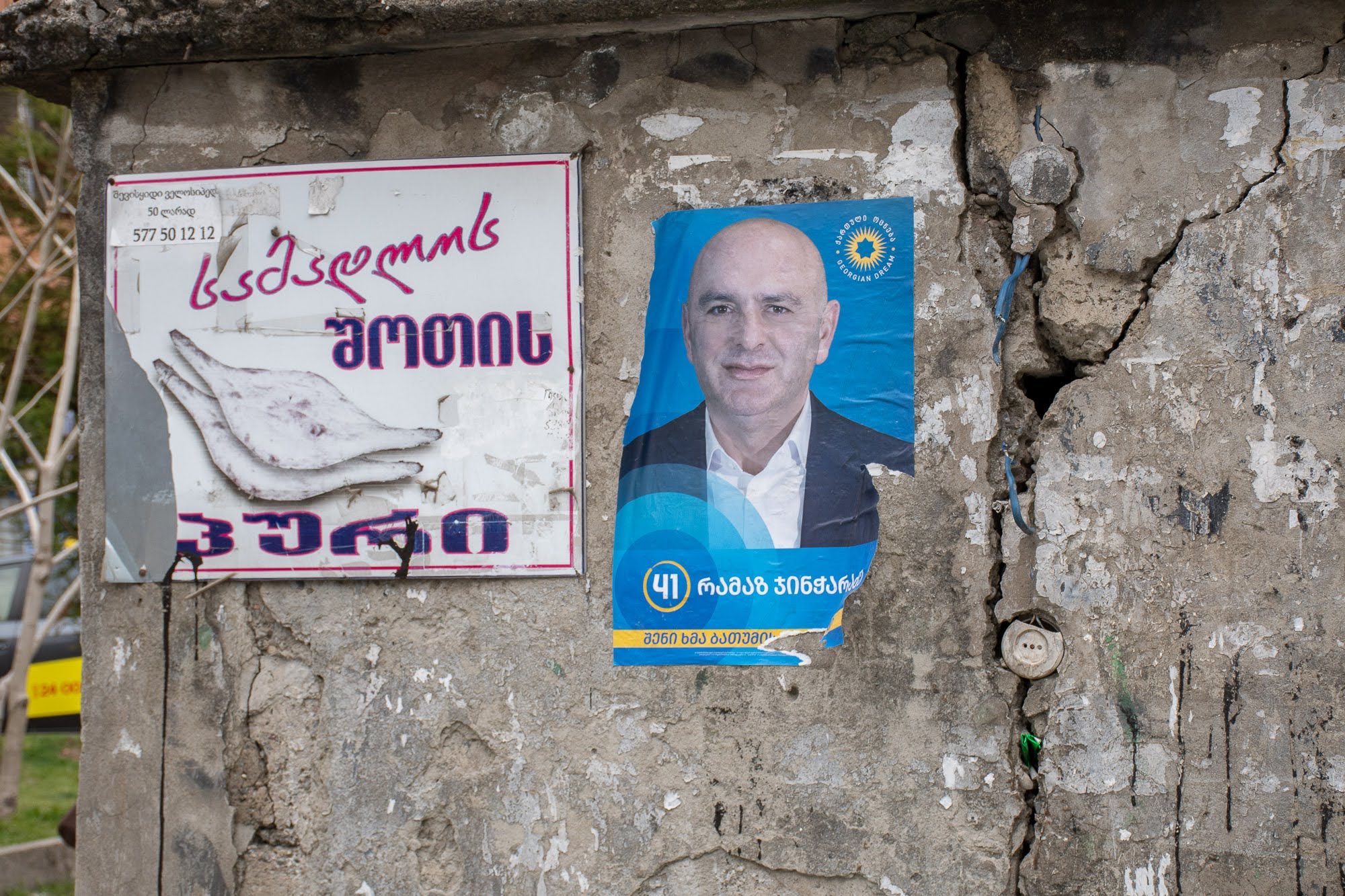
The election results signal a shift in power in favour of the ruling Georgian Dream party, which now controls 17 seats, equal to the number held by the UNM, Lelo, and For Georgia.
Independent councillor Giorgi Tavdgiridze, who left the opposition For Georgia party soon after October’s local elections, is widely expected to cooperate with the ruling party, which would give Georgian Dream control of the city.
Batumi was among several municipal and city councils where Georgian Dream failed to garner majorities in October’s elections. Since the election, Batumi city council has remained dysfunctional, remaining without a chair.
Son of the councillor ‘pressured to death’ loses his first electoral battle
The opposition’s candidate was Mate Putkaradze, a 41-year-old with no political background. He was running to replace his father, who the opposition have claimed was ‘pressured to death’ by the authorities last November to shift the balance of power in the 35-member council.
The UNM have claimed that henchmen of the local authorities in Adjara sought to bribe Nugzar Putkaradze, Mate Putkaradze’s father, to become a ‘neutral’ legislator in the vein of former For Georgia member Giorgi Tavdgiridze.
[Read more on OC Media: Opposition claim fatal pressure on Batumi councillor]
His father’s death inspired Mate Putkaradze to vie for the seat, claiming the campaign was for ‘dignity’, that is, to prove that voters were not up for sale or controlled by intimidation.
‘He [my father] became a victim of these vote-buyings’, Putkaradze told OC Media on the day of the vote in his small office in Batumi.
‘I did not know about the pressure on him. I only learnt about it from my mother. After that, I decided to run. I think he passed away as a dignified man setting a high standard… I want to fulfil what my father promised the voters’.
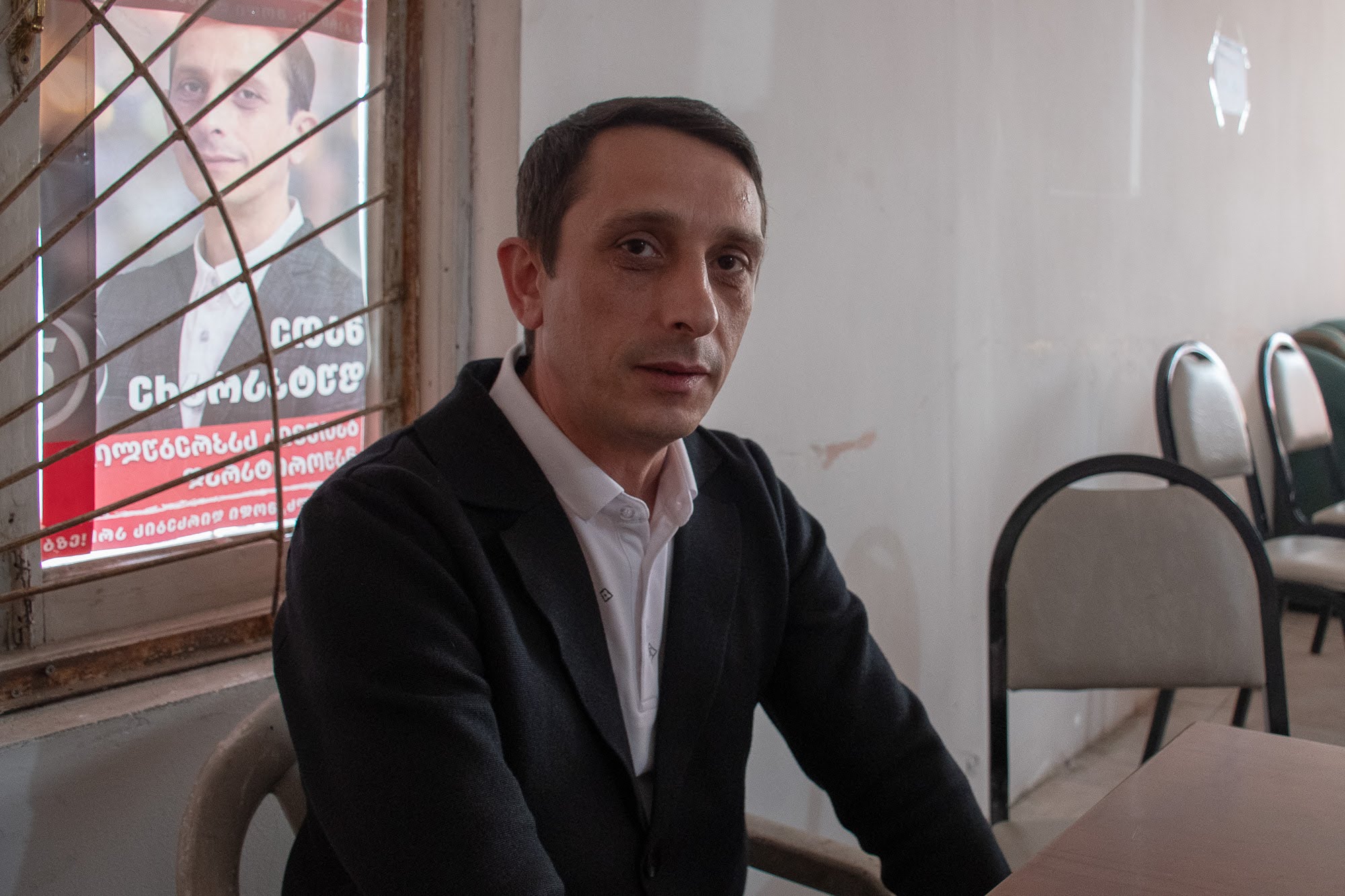
The opposition contender said his door-to-door campaign had been influenced by the public’s dismay at Russia’s war against Ukraine.
‘For us, it was somewhat awkward to approach residents with our campaign’.
Debates over how Georgia positioned on and reacted to Russia’s unprovoked war, still very much ongoing, have overshadowed most local or national issues since 24 February.
Putkaradze, whom those close to him describe as being camera-shy, did not speak to the media pool after the initial results came in. However, UNM leaders have vowed that the ‘fight for dignity’ would continue despite unfair competition on 2 April.
On election day, Georgia also saw another by-election for a parliamentary mandate from the constituency of Rustavi and Gardabani municipalities. A key opposition candidate, Lelo chair Badri Japaridze, went as far as cancelling his race in late February over the events in Ukraine. This left an opening for Georgian Dream’s Irakli Shatakishvili to win a landslide 91% victory there.
‘City of Dream’ new voters — ‘biggest problem’
On election day in Batumi, Channel 25, an independent local TV station, reported possible vote-buying with petrol coupons, with one local resident confirming the scheme to the channel without saying who was behind it.
In fact, a day before the vote, Batumi City Court struck down an appeal by opposition groups to deregister the governmental candidate from the race over vote-buying allegations. Their claim referred to an allegedly larger and more organised attempt to influence the vote.
In a conversation with OC Media on 31 March, Mirdat Kamadadze, a UNM councillor in Batumi, accused the authorities of ‘bribing socially vulnerable people’.
He claimed that earlier that month, the authorities inflated the number of voters in the 89th electoral precinct of Batumi to 2,015 voters, an unusually high number for a polling precinct.
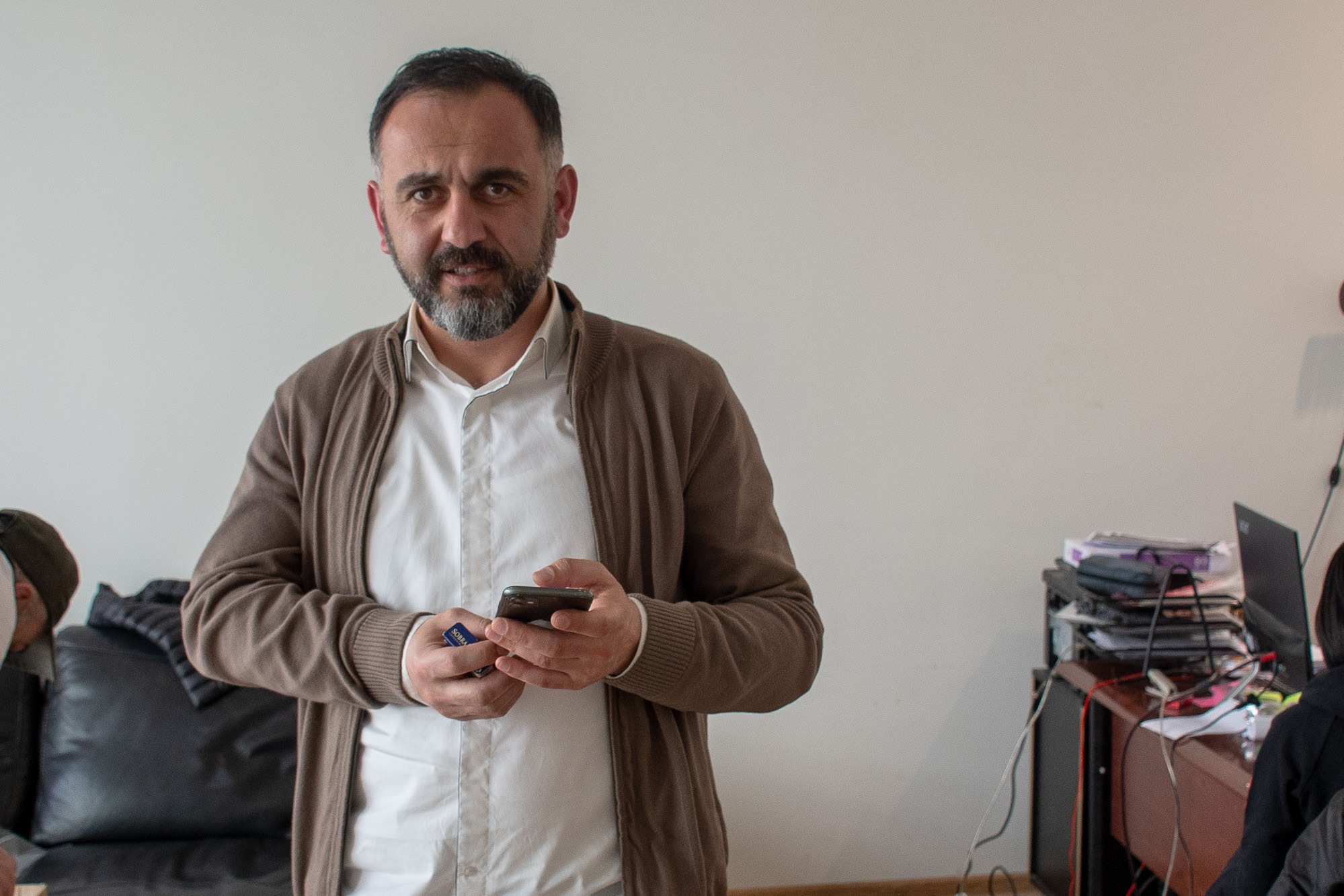
The margins of the 89th electoral precinct covered a neighbourhood of mostly poorer Batumi residents commonly called the City of Dream, where several hundred people, some living in slums and many receiving social assistance, had their residence in the area registered shortly before the election.
Several local media outlets reported that many such residents expected to receive flats from the government in a new building currently under construction.
Mirdat Kamadadze told OC Media that the new voters added to the 89th precinct surpassed a thousand in March, including 402 new residents on Pridon Khalvashi Avenue in Batumi with no exact address specified.
Georgian Dream rejected the accusations, claiming that the changes in electoral lists were usual and in the case of the 89th precinct, included newly eligible young voters.
Kamadadze, who claimed that only 88 of them were new voters, was not convinced. Neither were election watchdog the International Society for Fair Elections and Democracy (ISFED), whose Executive Director, Nino Dolidze, concurred with the accusation levelled by UNM calling it ‘the biggest problem’ during the election.
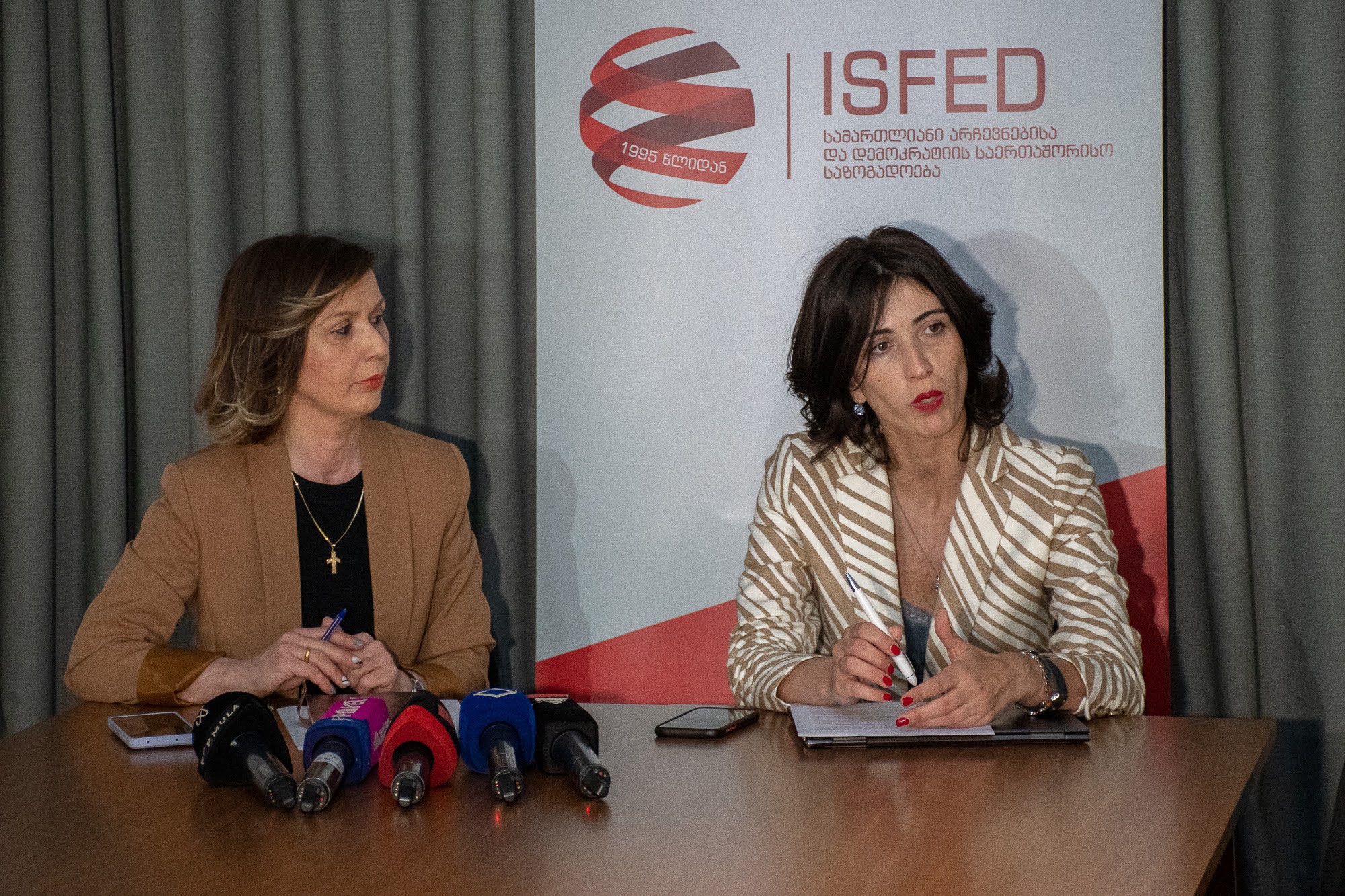
‘There were 497 new additions according to the information obtained from CEC. Around 90 of those recently turned 18 years old… but those others were registered without addresses basically within two days’, Dolidze said at a press briefing.
As a result of the added voters, the electoral administrators barely managed the flow of voters into the polling station. ISFED noted that there were not enough additional voting booths as mandated when there are over 1,500 voters in a precinct.
‘The fate of elections is nowadays mostly decided outside the polling stations and in the run-up to the vote’, Dolidze noted. ‘This is the trend of the recent elections.’
Vote tracking, suspicious observers
Another major election watchdog group, the Georgian Young Lawyers’ Association (GYLA), condemned what they called a ‘total disregard’ of rules against tracking and engaging with voters within 100 metres of polling stations.
The rules were relaxed in recent years from a previous 25-metre limit.
According to Nanuka Kruashvili, GYLA’s Democratic Institutions Support Programme Director, in some cases, police failed to act, while in others, there was no point in their intervention as many of those suspected of influencing voters wore electoral observers’ badges.
Kruashvili told OC Media the day after the vote that less known observer groups deployed to polling stations to influence voters was an emerging challenge.
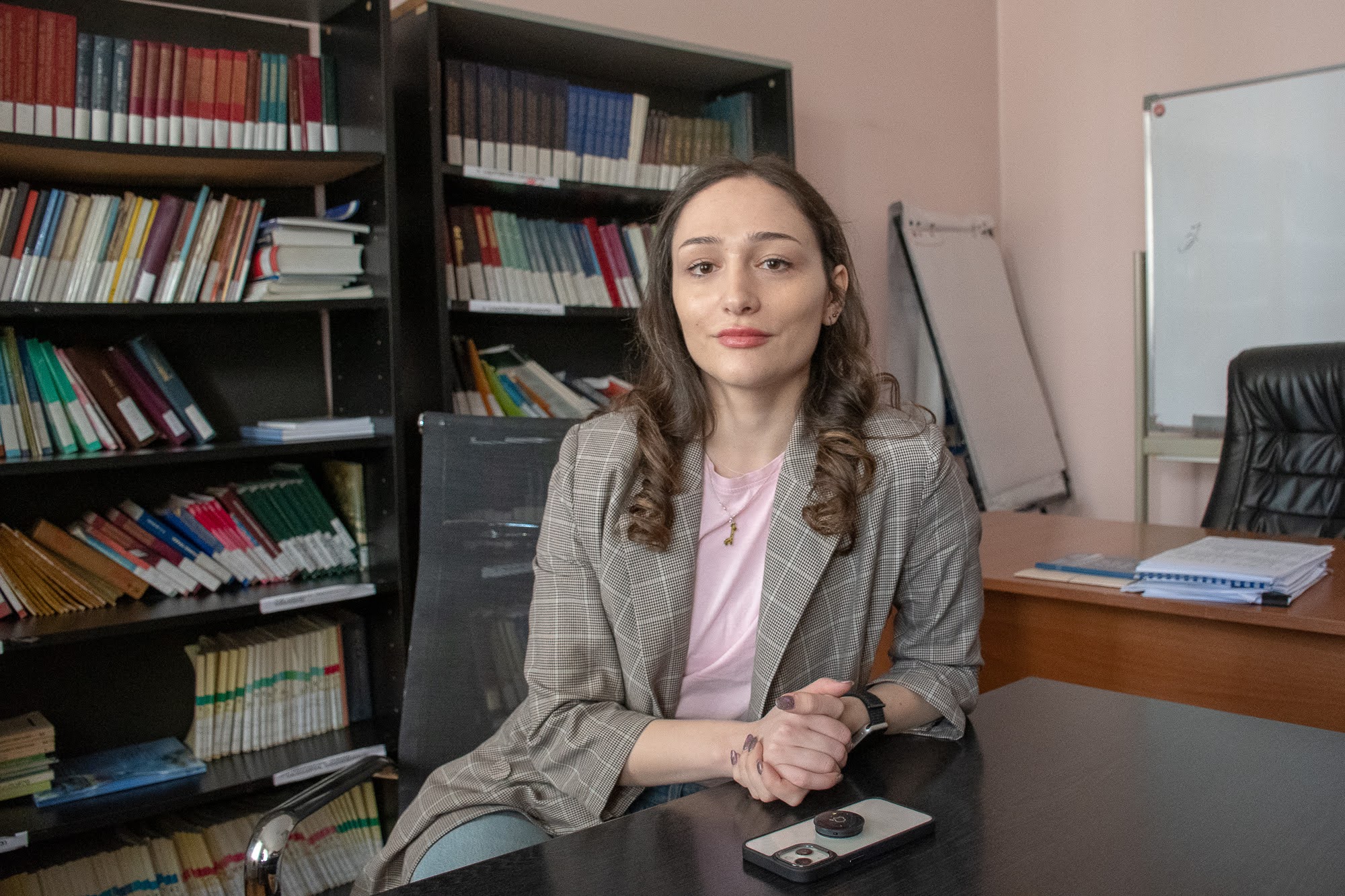
‘Around 1,500 observers were present at the [fourth Batumi] District’, Kruashvili said. ‘This is alarming.’
She noted that around 20 observer groups were entirely unknown to GYLA, which are a reputable election watchdog.
‘They also overcrowded the polling stations, there were too many of them and we were obstructed from monitoring the voting’.
In their post-vote statement, GYLA criticised both Georgian Dream and the UNM for several cases of campaigning on election day, which is banned, including an observer from the UNM at the 79th precinct wearing a t-shirt with ex-councillor Nugzar Putkaradze’s name printed on it.
Several polling stations were abundant with mid-level public servants, including from outside the Adjara region, in addition to Georgian Dream members outside polling stations. GYLA confirmed these trends, which they said were problematic.
‘Their presence near the polling stations increased the risk of influencing the will of voters’, GYLA said in a statement.
UNM MP Ana Tsitlidze claimed outside Batumi’s 104th polling precinct that mass mobilisation of local men beyond the 100-metre limit from polling stations still intimidated many voters.
‘They sit in vehicles outside the polling stations and have accurate information about who to intimidate, who to bribe with cash, and how many people they need to show up to avoid losing. It’s all about the outside area’, Tsitlidze told OC Media.



